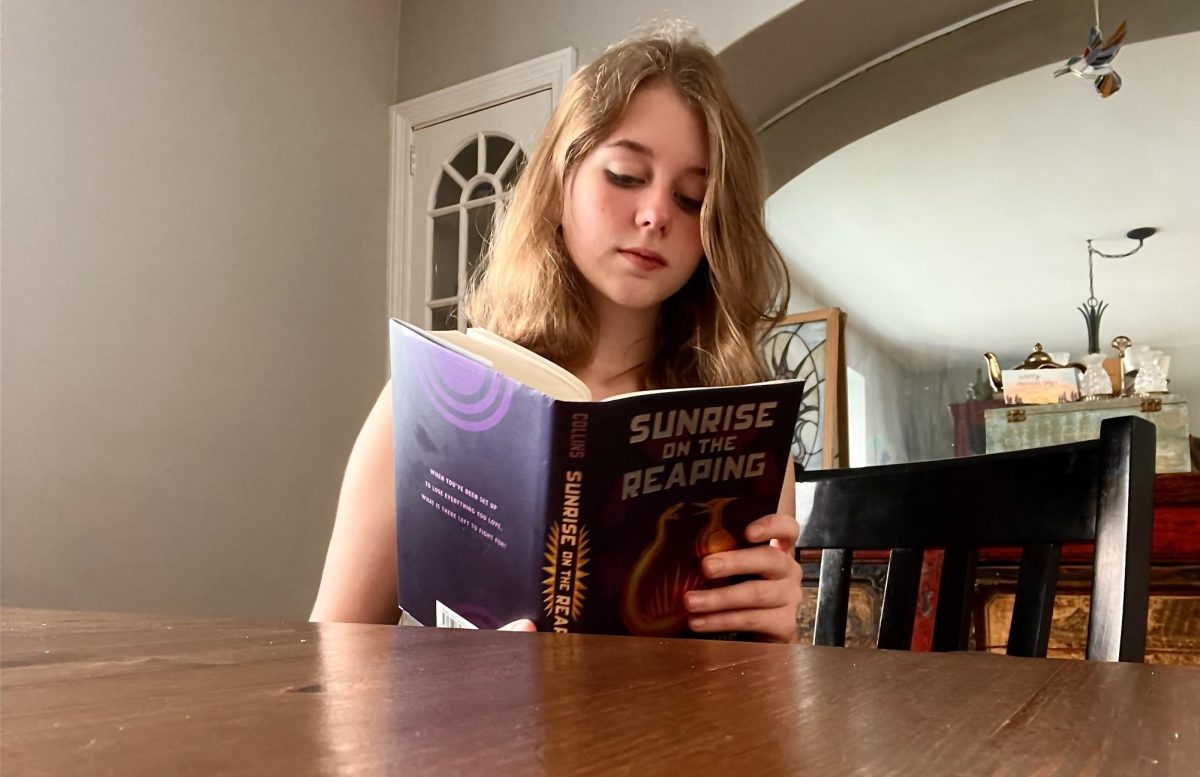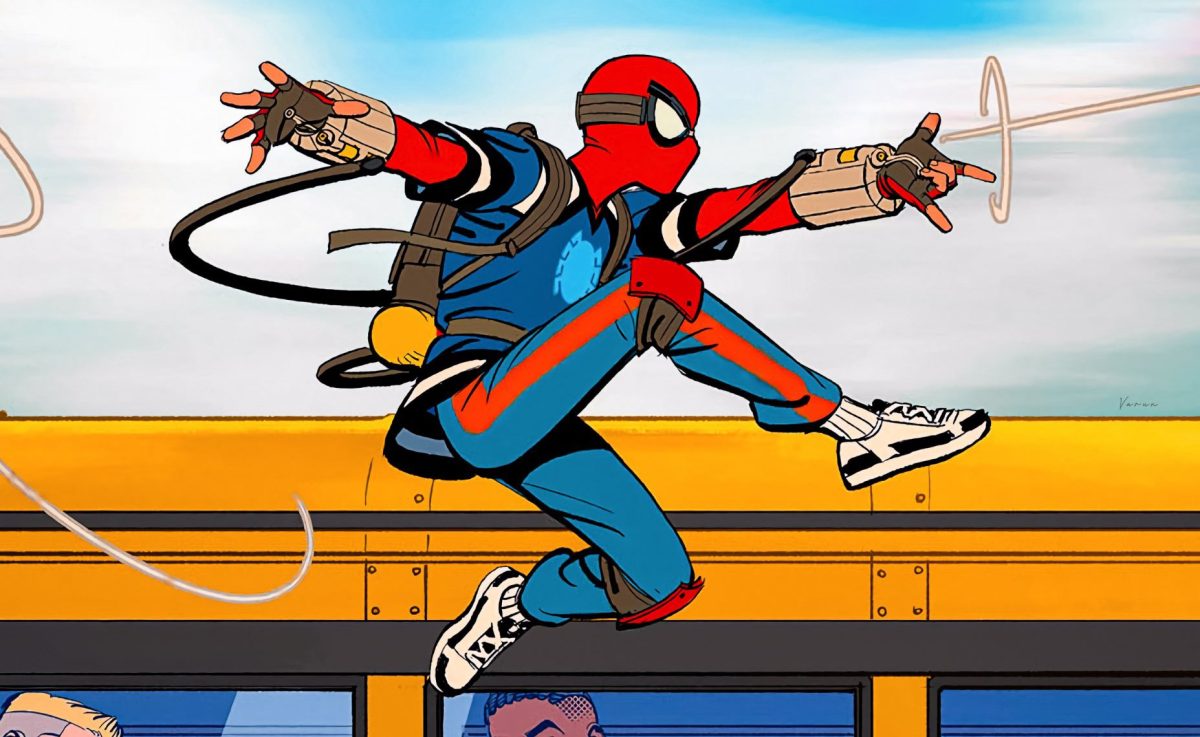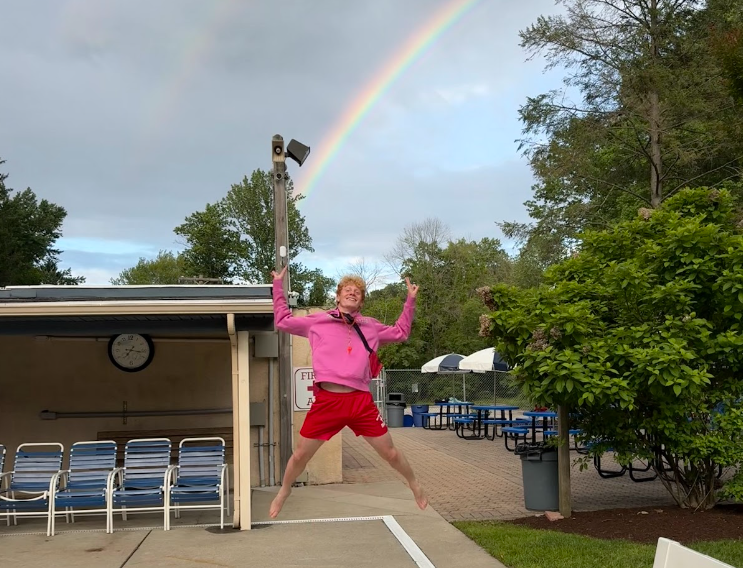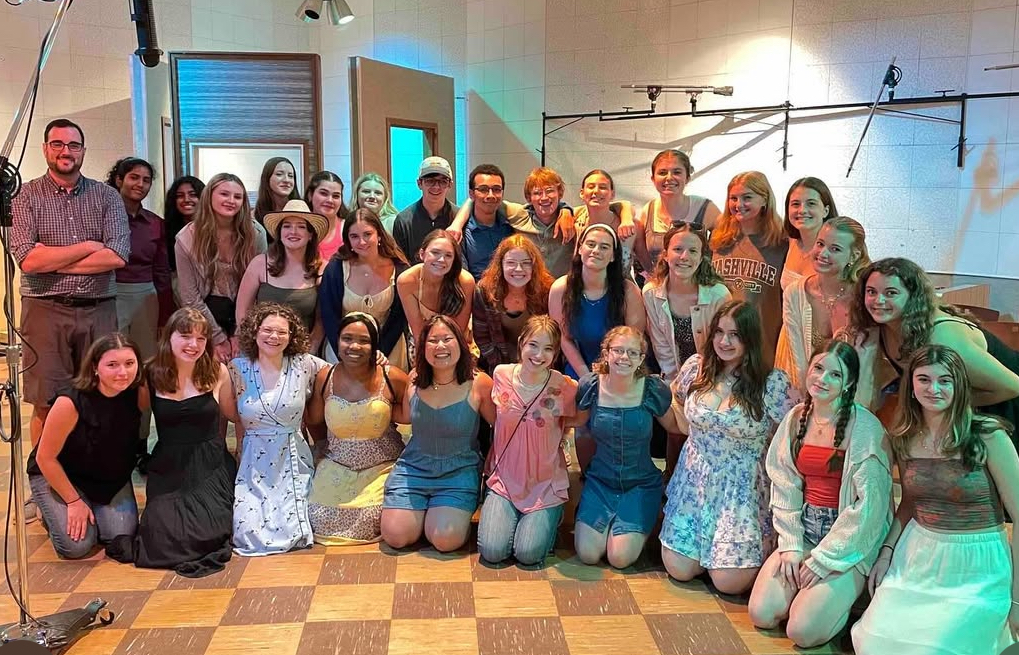Fifteen years after the original Hunger Games trilogy was completed and five years after the first prequel was released, another prequel has arrived. Sunrise On The Reaping, written by Suzanne Collins, was released on May 18, 2025, reawakening a passionate fandom.
I adored the Hunger Games when I first read the series in middle school, but after looking past the nostalgia factor, I was skeptical about adding more content to the world of Panem. After four books, what more could Collins have to say? Is this just another good book in an exhausted franchise?
Sunrise on The Reaping follows Haymitch Abernathy, a supporting character in the original trilogy. As an adult in the original series, Haymitch is an alcoholic, bereft of loved ones and traumatized by surviving the Hunger Games, the government’s brutal punishment for rebellion in which children fight to the death in an arena. Haymitch finds new purpose mentoring the main character, Katniss Everdeen, but the audience has long wondered about the past that shaped him. Sunrise on the Reaping explores Haymitch’s journey through his selection, his fight in the Games, and the devastating fallout that follows him home.
Because this book centers on a preexisting character, I would primarily recommend it to established fans. The same themes of authoritarian cruelty that defined the original series are present here. If you’re looking for an iconic dystopia, read the original trilogy and take comfort in knowing that this book offers much of the same. The only reason to venture into this second prequel is if you’re deeply invested in the world and characters of the Hunger Games rather than seeking a standalone story. This book is not for readers craving new revelations; it is for those who want to be further immersed in what they already love.
Perhaps the biggest issue I had with this book was the love interest, Lenore Dove. Lenore is a “Covey girl,” much like Lucy Gray Baird, the love interest in A Ballad of Songbirds and Snakes. She is a colorful, musical advocate for change in a cruel dystopian world. Unfortunately, she is also the epitome of a manic pixie dream girl and barely distinguishable from Lucy. As I reflect after reading, I can’t think of a single interesting trait about her that wasn’t portrayed better by her ancestor in the other prequel. Any scrap of depth or motivation felt recycled.
Lenore’s tragic romance with Haymitch is meant to be a key source of emotion, but it only works if the reader accepts the blatant reuse of a stale trope. Her role in the story’s climax was undoubtedly devastating, but I can’t help mourning the missed opportunity to care more. I would have been far more affected if Collins had taken the risk to create a more unique, fleshed-out character. After seeing online posts of readers weeping, I expected more. Personally, I don’t think such a shallow character was worth crying over.
Haymitch’s mother and brother were also underdeveloped. As an audience, we know that Haymitch had people he loved and that it hurt to lose them. But in our hearts, we never knew Haymitch’s loved ones very well, so how much can we really grieve their loss?
A hefty section of the story takes place in the arena, where the violent Hunger Games are held. The arena cleverly mirrors the Capitol as it is extravagant and vibrant to a sickening degree. Bright flowers kill, and crystal-clear streams run with poison, just as the cruel Capitol holds glittering parties brimming with unique fashion and plentiful food.
Unfortunately, after spending a long time in the arena, the action begins to wear thin. The many layers of horror become a series of sad events, lacking any thrilling buildup. And, most readers already know how the story ends. Along with a number of details about Haymitch’s Games, we know from the original series that Haymitch will win the Games and become an isolated alcoholic with no loved ones. It is difficult to keep an audience on edge when the ending is a foregone conclusion. A Ballad of Songbirds and Snakes gave Collins much more freedom, since Snow’s backstory hadn’t yet been explored.
The book’s strongest moment is its ending. From the moment Haymitch leaves the arena as a victor, I was riveted. This is where the story shifts from survival in the wilderness to the emotional and political aftermath. The experiences and losses Haymitch endures after his victory are the most impactful parts of the novel. The final chapters are the reason I don’t regret reading the book.
Whether Sunrise on the Reaping is a good or bad book is not a simple question. It has many flaws, most stemming from a lack of originality and reliance on familiar events. Had it carved its own path and focused more on new, compelling characters, it would have been a stronger read. That said, The Hunger Games series is popular for a reason. Suzanne Collins remains a skilled writer with an engaging style and a powerful message. Though the franchise may feel worn out, a Hunger Games book will always be good.















